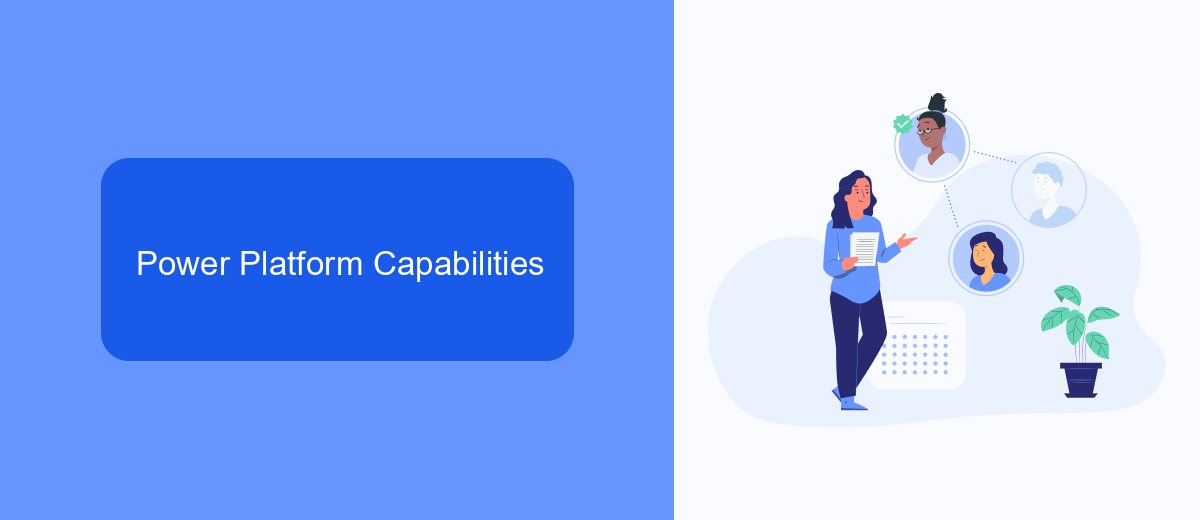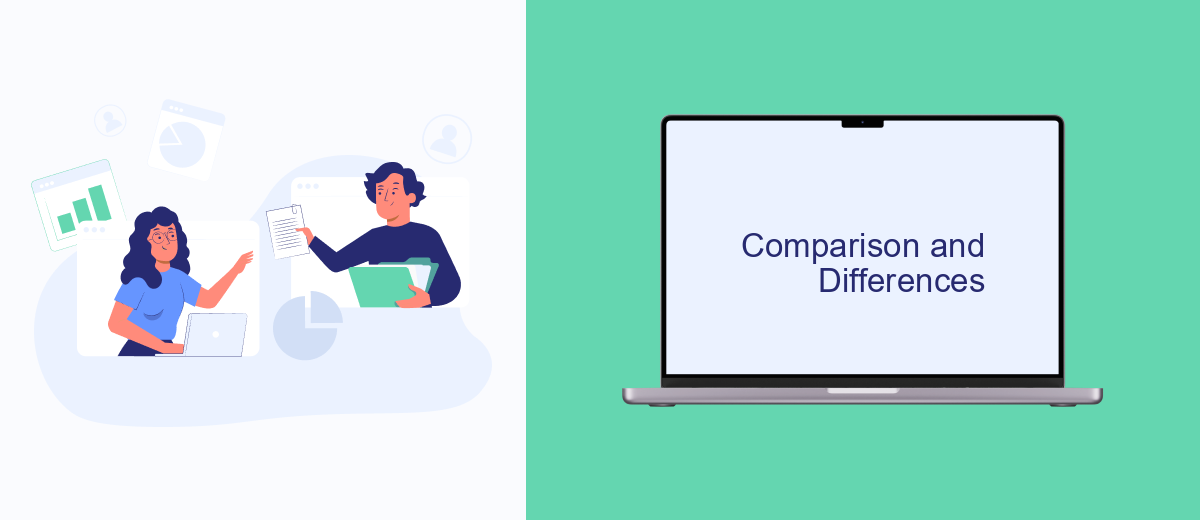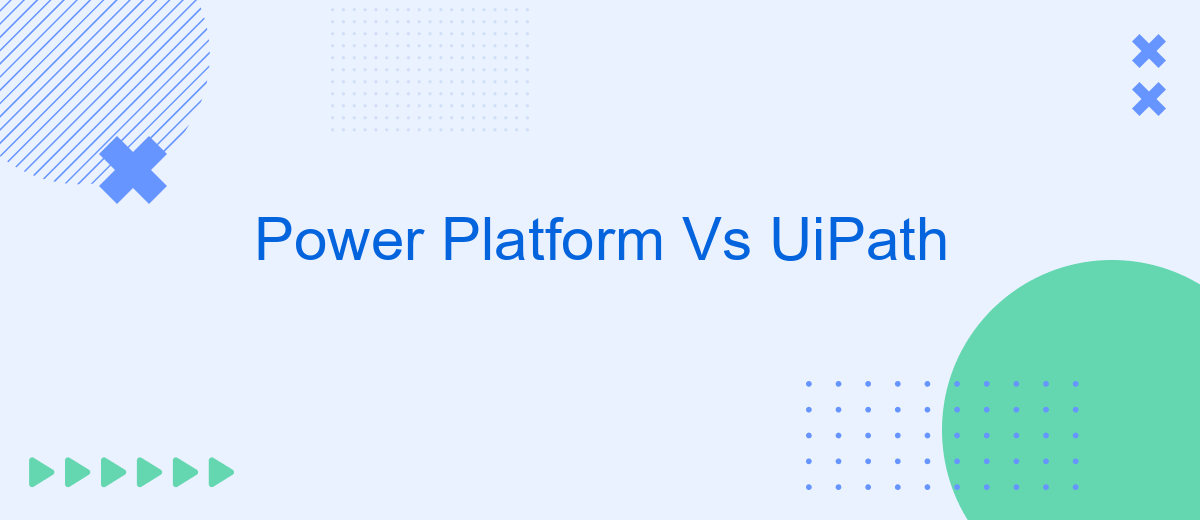In the rapidly evolving landscape of automation technologies, Power Platform and UiPath stand out as two prominent solutions. Power Platform, developed by Microsoft, offers a suite of tools for building apps, automating workflows, and analyzing data. UiPath, on the other hand, specializes in robotic process automation (RPA), enabling businesses to streamline repetitive tasks. This article delves into their key features, benefits, and differences.
Introduction
In today's rapidly evolving digital landscape, businesses are constantly seeking ways to automate processes, improve efficiency, and enhance productivity. Two prominent platforms that have emerged as leaders in this domain are Microsoft's Power Platform and UiPath. Both platforms offer robust tools for automation, but they cater to different needs and use cases.
- Power Platform: A suite of applications, connectors, and a data platform that provides a rapid application development environment to build custom apps for business needs.
- UiPath: A leading robotic process automation (RPA) tool designed to automate repetitive tasks and integrate systems without human intervention.
Choosing the right platform depends on various factors such as the complexity of tasks, integration requirements, and specific business objectives. Services like SaveMyLeads can further streamline the integration process, making it easier to connect different systems and automate workflows seamlessly. This comparison will delve into the strengths and weaknesses of each platform to help you make an informed decision.
Power Platform Capabilities

Power Platform is a suite of applications, connectors, and a data platform (Dataverse) that provides a rapid development environment to build custom apps for your business needs. One of its core components, Power Apps, allows users to create custom applications with little to no code, making it accessible for those without a technical background. Power Automate, another key component, enables users to automate workflows between applications and services, streamlining business processes and increasing efficiency.
Additionally, Power BI offers robust data analytics capabilities, allowing organizations to visualize and share insights from their data. Power Virtual Agents empowers users to create chatbots that can engage with customers and employees, providing automated support and information. For seamless integration, services like SaveMyLeads can be utilized to connect various applications, ensuring data flows smoothly across systems. Overall, Power Platform's capabilities foster innovation and efficiency, enabling businesses to adapt quickly to changing demands.
UiPath Capabilities

UiPath is a leading Robotic Process Automation (RPA) platform designed to automate repetitive and time-consuming tasks, enhancing operational efficiency and accuracy. It offers a wide range of capabilities that make it a preferred choice for organizations looking to streamline their workflows.
- Automation: UiPath provides extensive automation tools that can handle complex processes across various applications and systems, reducing manual effort and errors.
- AI Integration: The platform integrates with AI technologies to enable intelligent automation, allowing for advanced data processing and decision-making.
- Scalability: UiPath is highly scalable, supporting the automation needs of both small businesses and large enterprises, ensuring seamless growth and adaptability.
- Integration Capabilities: UiPath supports integration with numerous third-party applications and services, including SaveMyLeads, which simplifies the process of connecting various platforms and automating data flows.
- Analytics: The platform includes robust analytics tools that provide insights into the performance and efficiency of automated processes, helping organizations optimize their workflows continuously.
Overall, UiPath's comprehensive capabilities make it an invaluable tool for businesses aiming to enhance productivity and operational efficiency through automation. Its ability to integrate with services like SaveMyLeads further extends its functionality, making it easier to manage and automate complex workflows.
Comparison and Differences

Power Platform and UiPath are both powerful tools in the realm of automation, but they cater to different needs and have unique strengths. Power Platform, developed by Microsoft, is a suite of applications, connectors, and a data platform that provides a low-code environment for app development and workflow automation. UiPath, on the other hand, is a leading Robotic Process Automation (RPA) tool that focuses on automating repetitive tasks using software robots.
One of the key differences between the two is their approach to automation. While Power Platform emphasizes a low-code/no-code approach to enable business users to create solutions without extensive programming knowledge, UiPath is more developer-centric, providing robust tools for creating complex automation scripts.
- Integration: Power Platform integrates seamlessly with other Microsoft services and third-party applications through connectors. UiPath also supports extensive integrations but often requires more technical expertise.
- User Base: Power Platform is tailored for business users and citizen developers, whereas UiPath is geared towards professional developers and IT departments.
- Capabilities: Power Platform excels in building custom apps and workflows, while UiPath shines in automating repetitive, rule-based tasks across various systems.
For businesses looking to streamline their integration processes, services like SaveMyLeads can be a valuable addition. SaveMyLeads helps automate the transfer of leads and data between different platforms, ensuring a smooth and efficient workflow. Choosing between Power Platform and UiPath ultimately depends on the specific needs and technical expertise of the organization.
Conclusion
In conclusion, both Power Platform and UiPath offer robust automation capabilities, each with its own set of strengths. Power Platform excels in seamless integration with Microsoft's ecosystem, making it an ideal choice for businesses already leveraging tools like Office 365 and Dynamics 365. Its low-code environment empowers users with varying technical skills to create powerful applications and workflows, enhancing productivity and operational efficiency.
On the other hand, UiPath stands out with its advanced robotic process automation (RPA) capabilities, suitable for more complex and large-scale automation projects. It provides extensive support for various third-party applications and legacy systems, making it versatile for diverse business needs. For companies looking to streamline their integration processes further, services like SaveMyLeads can be instrumental. SaveMyLeads simplifies the automation of lead management by connecting various platforms, ensuring a smooth and efficient data flow. Ultimately, the choice between Power Platform and UiPath depends on an organization's specific requirements, existing infrastructure, and long-term automation goals.


FAQ
What are the main differences between Power Platform and UiPath?
Which platform is better for non-technical users?
Can both platforms be integrated with other services?
How do these platforms handle data security?
What are some common use cases for each platform?
SaveMyLeads is a simple and effective service that will help you automate routine tasks and optimize business processes. Stop wasting time uploading leads from Facebook manually – you can do it automatically, saving a lot of time and money. Eliminate routine from workflows and achieve more with minimal investment of money, effort and human resources.
